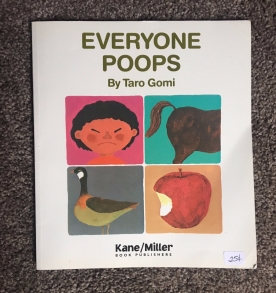If you’ve perused any children’s library in the last fifteen years, you’ve probably come across Olivia by Ian Falconer. It’s a hugely popular, award-winning book series. A has two copies of the original book, a copy of another from the series, and has gotten multiple other books from the series out of our local library. The original book is undeniably charming—the illustrations are minimal, and Olivia herself is a strong, feminist character. She’s opinionated and passionate and willing to try new things. I’m glad A enjoys reading such a strong, female character. 
As I’ve read the series over and over and over and over and over for the last year or so, I have come to a realization: Olivia’s dad is so god DAMN annoying. In the original book, he’s pretty much absent. Olivia’s mom does all of the care-taking. I think he is mentioned once. Fine, whatever. I can get over that. BUT, in other books in the series, he is present and actively annoying. He sits and reads the newspaper while Olivia’s mom is feeding the baby. He undermines things Olivia’s mom said (all of this in just Olivia… and the Missing Toy). He just generally doesn’t engage in care-taking or with his children in any of the books that we’ve read from the series. Can a book count as feminist if the dad is that annoying? I’ve written before about how society devalues care-taking—this is one of the books that proves my point.
We’ve continued to read the Olivia series in our house, for sure, but not without problematizing it for A. For example, I sometimes say:
“This picture shows Olivia’s mom helping the baby and Olivia’s dad reading a newspaper. Sometimes that happens in our house, but sometimes Baba helps you and I read.”
The parents in the books are just so normative in gender roles that it is hard to ignore. There may be other points in the series when Falconer does try to disrupt gender stereotypes (we haven’t read the whole series, to be fair), but that doesn’t negate the fact that Olivia’s dad is still the most annnoyinnnngggg. Books can be charming and good in some ways, but not great in others. The Olivia series is a perfect example of that.
P.S. This reflection doesn’t even touch on class-based analysis of Olivia: the family goes on vacations to Italy, not to mention the Ballet and art museums in NYC. I was worried when I wrote this reflection that it was prioritizing a white feminist lens, rather than an intersectional feminist one. I need to reflect more on making this review more intersectional.




